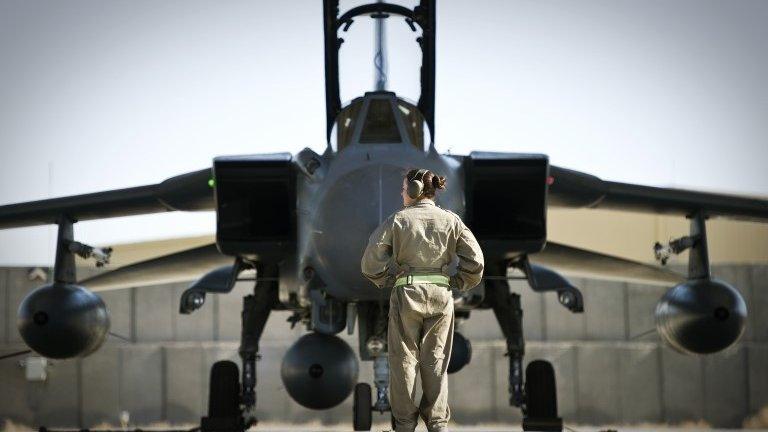Defence Secretary Michael Fallon defends UK spending
- Published
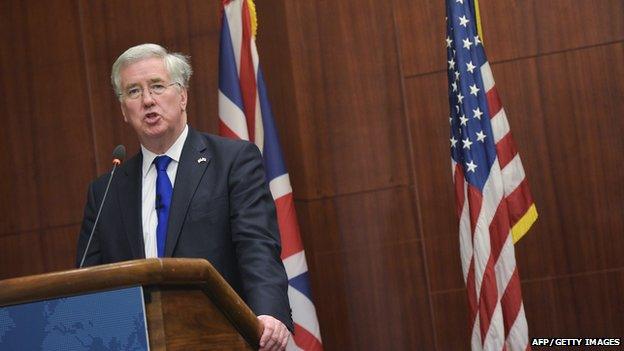
Defence Secretary Michael Fallon was speaking to a think tank in Washington DC
Defence Secretary Michael Fallon has defended the UK's military strength amid concerns about defence spending.
Mr Fallon said the UK, like the US, was urging Europe to spend more on defence.
He stressed the UK was one of only four member states meeting Nato's 2% of GDP target, but refused to say whether his party would commit to this beyond 2016.
Earlier, a former Ministry of Defence special advisor said Prime Minister David Cameron promised spending would rise after 2015 following cuts in 2010.
Luke Coffey said the pledge, given during talks on cuts five years ago, had made it easier to swallow a "difficult pill".
Earlier this week, the Royal United Services Institute said it was inevitable that UK defence spending would fall below that level - and warned that 30,000 more military personnel could lose their jobs, whoever won the general election in May.
Mr Cameron responded that the equipment budget would grow in real terms, and that further reductions in regular forces were not necessary - but added that "you can't have strong defence without a strong economy".
At Prime Minister's Questions on Wednesday, he insisted that the country had met its Nato commitments.
The former secretary general of Nato, Anders Fogh Rasmussen, has said it would send a "dangerous signal" to the rest of the alliance if UK defence spending was to fall below the target.
He told the BBC the prime minister had assured him it would stay above 2%.
'Leading by example'
Speaking to a think tank in Washington DC, Mr Fallon said: "You want Europe to do more to pay its way in defence; so do we.
"You want to see an end to the decline in Europe's defence spending that has a quarter of the alliance spending less than one percent of GDP on defence and 20 of the 28 members spending les than 1.5 percent; so do we."
He said the UK was leading by example because the country was meeting the Nato target.
Mr Coffey, who was special adviser to then Defence Secretary Liam Fox, told BBC Radio 4's Today programme that the commitment made in 2010 had helped avoid a major backlash by senior military figures against cuts at that time.
"That's what made this difficult pill to swallow that much easier," he said.
"The service chiefs and the ministers at the time knew that in order to take these cuts today, they are going to have to have long-term growth into the future and this was the agreement."
Ex-Army chief Gen Sir Peter Wall said the prime minister had promised more spending when the economy improved.
Sir Peter said the "significant reduction" in the defence budget had been made "against the expectation and an undertaking that the budget would increase when the economy started to turn the corner and improve".
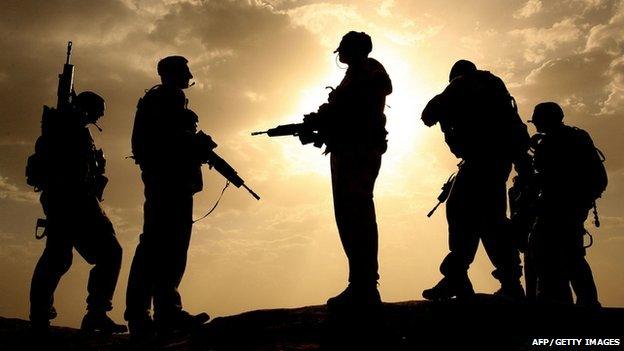
Meanwhile, the Financial Times has reported, external that Downing Street is seeking to "pad out" defence spending by looking to include other areas of expenditure.
It said that Mr Cameron had asked ministers to investigate whether the budget for the country's intelligence agencies could be included towards the Nato target.
UKIP's defence spokesman, Mike Hookem MEP, said this would be a "simply dangerous" move and that a further drop in spending would "significantly reduce" the Army's operational ability.
Downing Street has insisted it will stick to Nato guidelines when deciding what expenditure counts towards meeting the alliance's 2% target.
The prime minister told LBC radio he had a responsibility to make sure the "right decisions" were made about defence and security spending.
"I look at these things in the round, so I am also concerned about the budget for MI5, the Secret Intelligence Service, GCHQ, counter-terrorism policing," he said.
"To me all of these things are part of our national defence."
Concern over cuts
On Thursday the House of Commons will debate a motion by backbench MPs calling for a legal obligation for UK governments to keep defence spending at a minimum of 2%.
The latest contributions to the debate follow concern from senior US diplomat Samantha Power over cuts to defence budgets in Europe.
Chief of Staff General Raymond Odierno, the head of the US army, has also voiced his reservations about the falling proportion of the UK's national wealth being spent on the military.
Of the 28 countries in Nato, just four, including Britain, meet Nato's 2% target.
At a Nato summit in Wales in September 2014, Mr Cameron said all members would halt any decline in defence spending and move towards the 2% target over the next decade.
The UK government has committed to the 2% spending target until the end of this Parliament, but there has been no commitment beyond that from either the Conservatives or Labour.
- Published10 March 2015
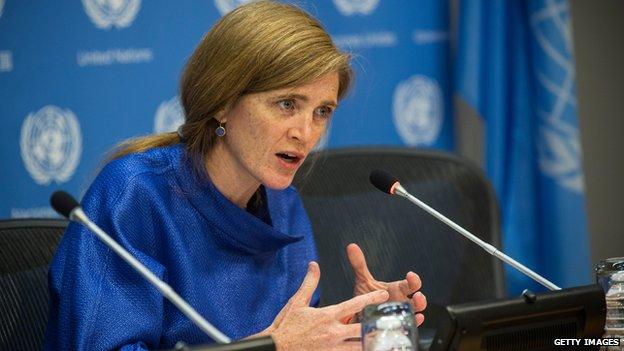
- Published10 March 2015
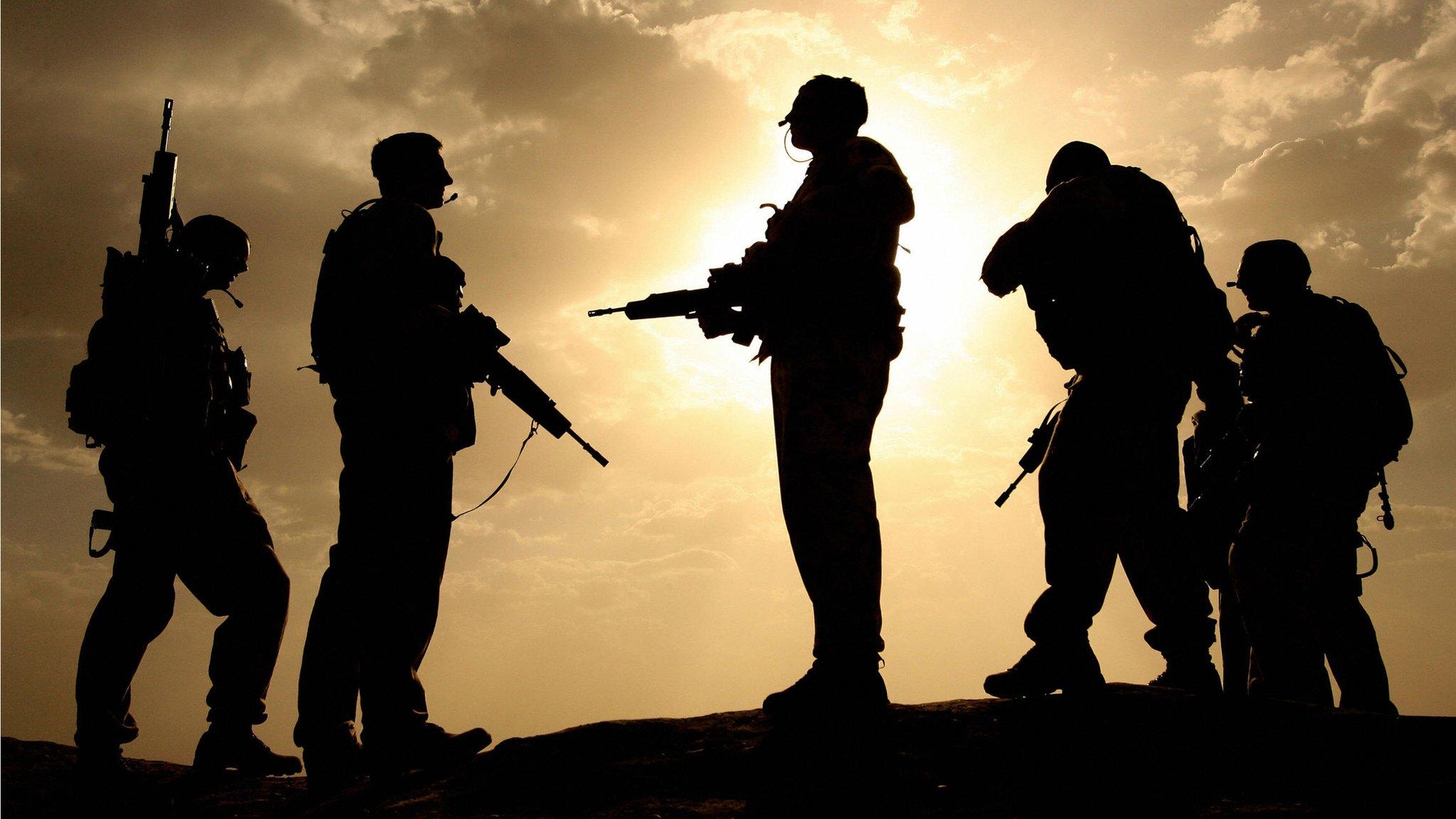
- Published9 March 2015
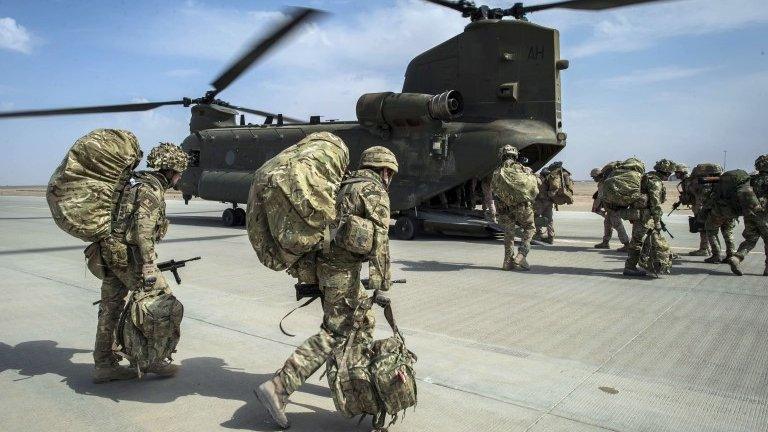
- Published2 March 2015
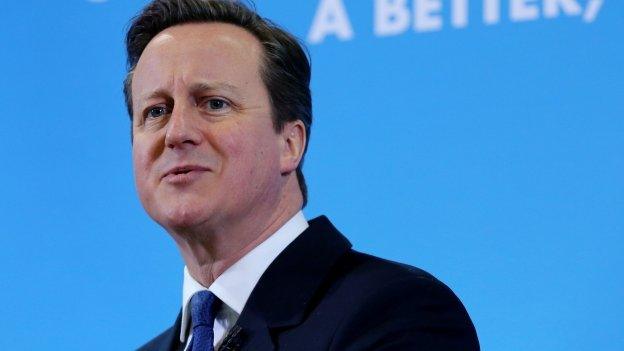
- Published2 March 2015
